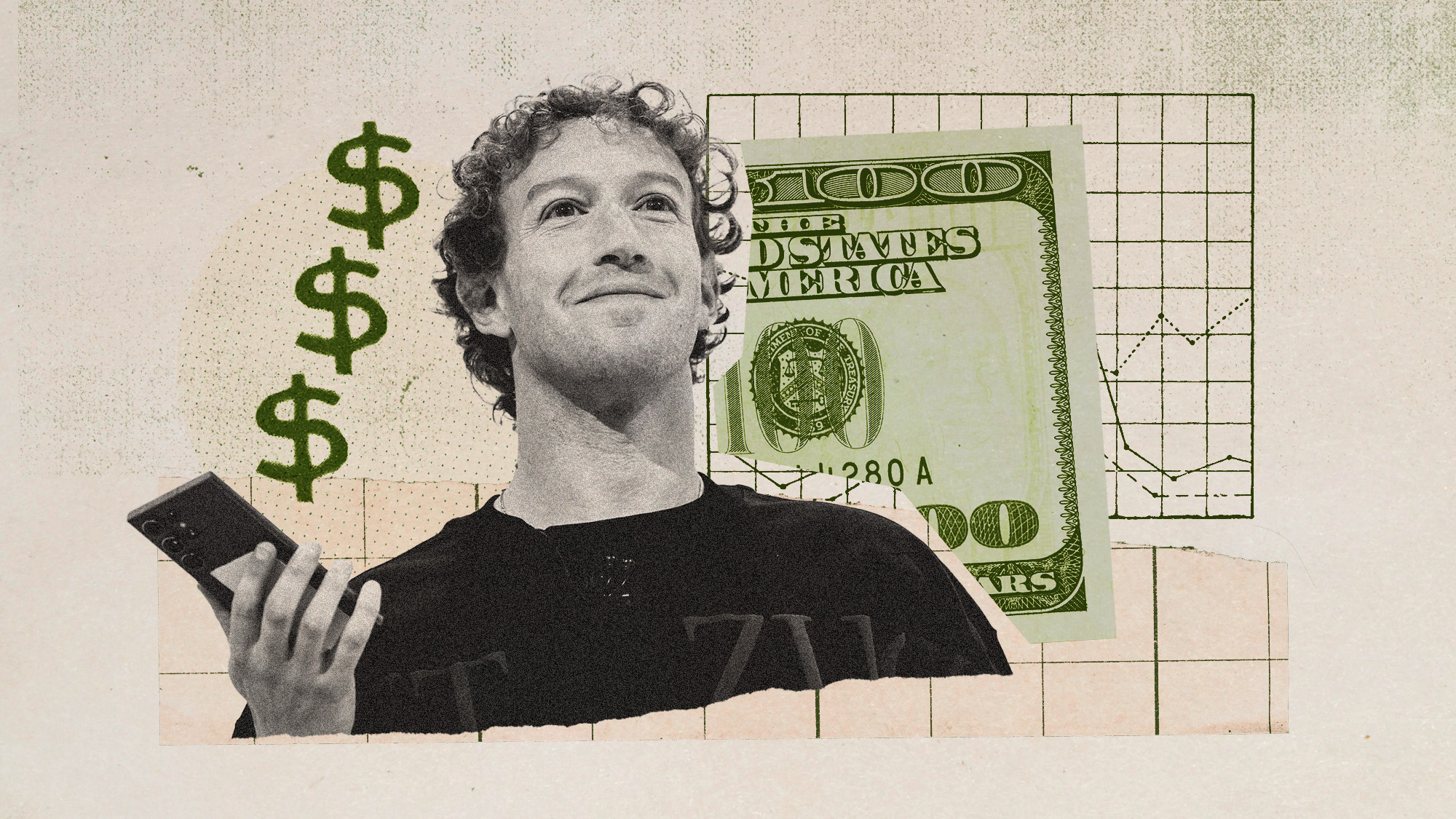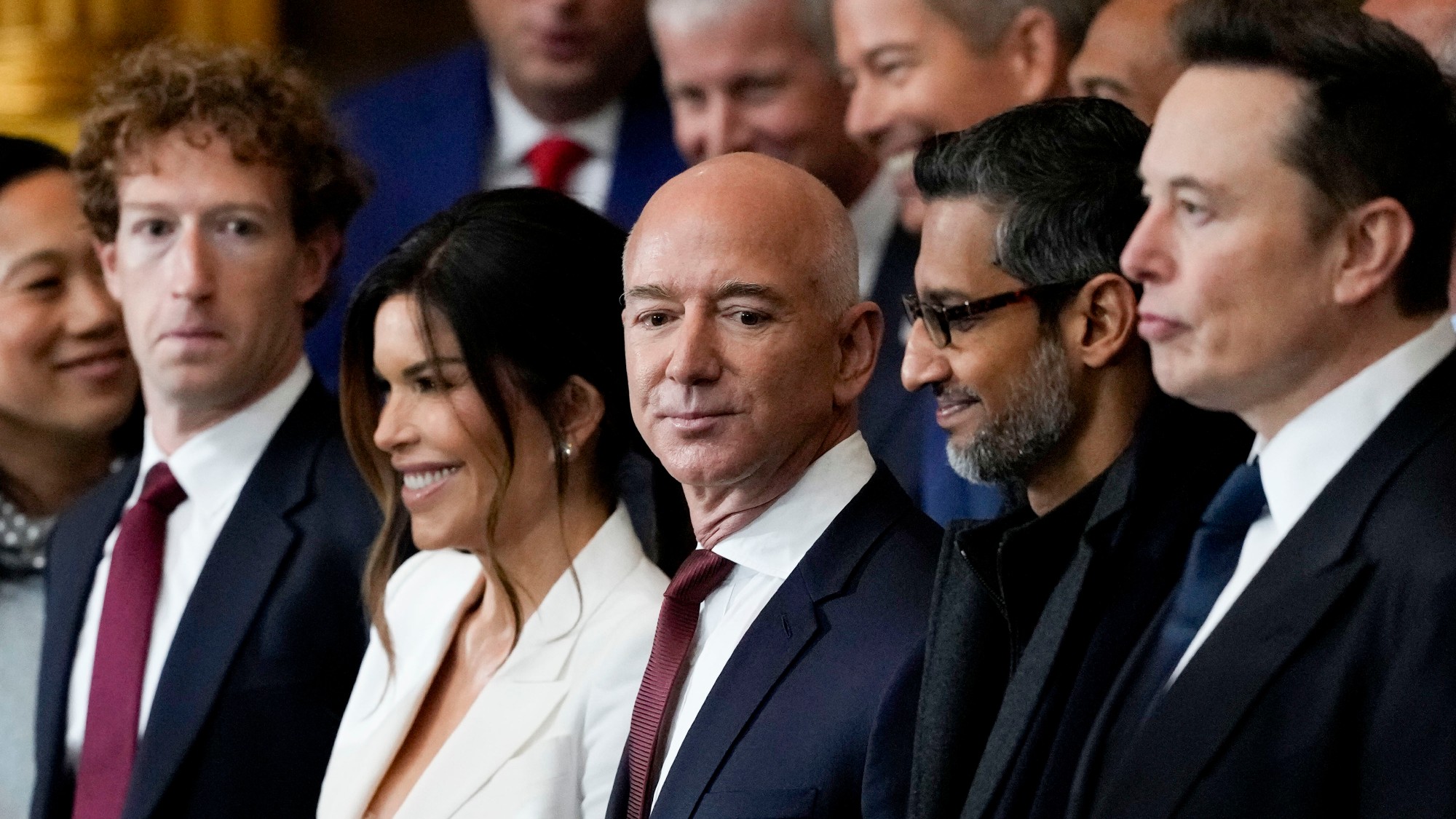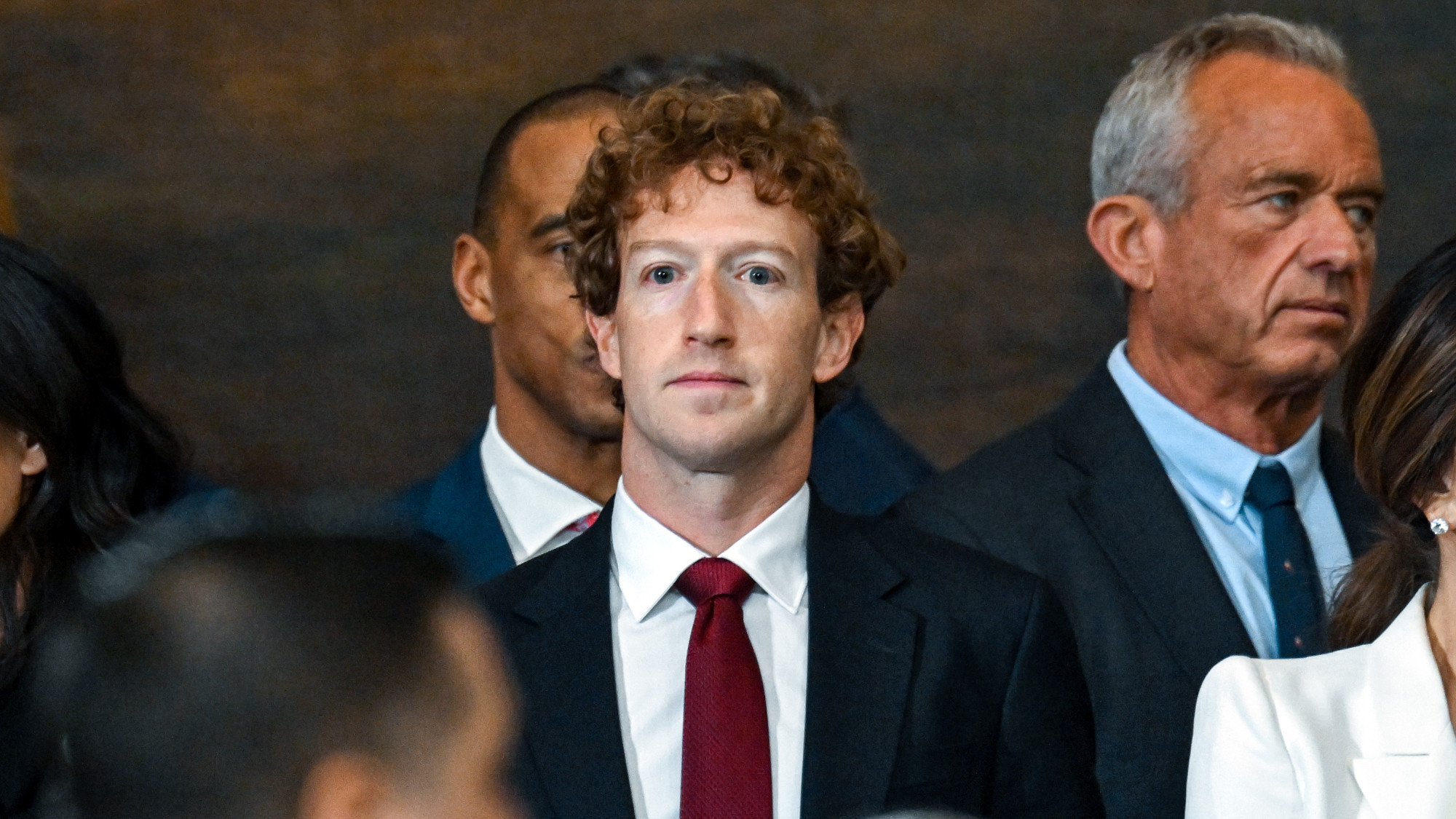Fly me to the moon: Oculus Rift is just the beginning
Will Zuckerberg keep to his promise to promote virtual reality outside of the world of gamers?
A free daily email with the biggest news stories of the day – and the best features from TheWeek.com
You are now subscribed
Your newsletter sign-up was successful
THE first thing I did when I heard about Facebook’s $2 billion acquisition of the virtual reality goggle maker Oculus Rift was reach for my digital copy of Ready Player One by Ernest Cline.
The setting for the book is almost entirely virtual. Because real life is so dire (the world is in the depths of a global economic and energy crisis; everyone lives in a trailer park, you get the idea), people choose to live almost entirely in something called OASIS - a massive “multiplayer online game that gradually evolved into the globally networked virtual reality most of humanity now used on a daily basis”.
In contrast to the grim reality of the daily grind, Cline’s OASIS is the home of interactive sitcoms and soap operas, free schools that can teach everything from your ABCs to quantum physics and the world’s biggest library, “with every book ever written, every song ever recorded and every movie, television show, videogame and piece of artwork ever created”.
The Week
Escape your echo chamber. Get the facts behind the news, plus analysis from multiple perspectives.

Sign up for The Week's Free Newsletters
From our morning news briefing to a weekly Good News Newsletter, get the best of The Week delivered directly to your inbox.
From our morning news briefing to a weekly Good News Newsletter, get the best of The Week delivered directly to your inbox.
To enter the world of OASIS, all you need is a virtual reality visor and a pair of haptic gloves. But while OASIS may be a figment of Cline’s imagination, the visor isn’t.
Oculus Rift makes this virtual reality visor. It isn’t particularly attractive: gamers demo-ing the device look like they’ve strapped opaque snorkeling goggles to their head. They also look like they’re at risk of swallowing a fly: many players find the experience so immersive they sit slack-jawed, completely entranced.
Joel Johnson’s review of using the Rift to play a game called Titans of Space says, “By the time you find yourself cocking your head all the way back so that you can take in the coronal margins of… a dying red giant [star], you’ll start to have a good understanding of how other-worldly virtual reality can be.”
If you’d rather stay on Earth, a London-based company called Inition uses the Rift combined with Microsoft’s Kinect (a device which tracks your movements and maps them into a computer-animated environment on a screen, in this case the one attached to your head) to simulate an experience where you edge your way across a plank of wood suspended hundreds of feet above earth.
A free daily email with the biggest news stories of the day – and the best features from TheWeek.com
Despite the fact he knew he was walking across a plank of wood that sat flush to the floor, Wired journalist Liat Clark found the experience entirely immersive. “With headphones on, all you hear is the rushing wind and the pounding of your heart.”
As Facebook CEO Mark Zuckerberg wrote in his recent blog post announcing his company’s purchase of Oculus Rift, when you put it on, “you feel like you’re actually present in another place with other people”.
Despite all the excitement behind the early experiences created by the company that was only founded in 2012 with $2.4 million from Kickstarter, much has been made of the betrayal that the gaming Kickstarter backers of Oculus feel.
The same Joel Johnson who so positively reviewed the game experience given by Oculus Rift tweeted, “If I did the math right (and who knows lol) my $300 KS investment ended up being worth $250,000… to them.” But besides selling out to The Man, which is sometimes hard to take, Oculus did nothing wrong. They didn’t owe them anything besides a headset.
It is notable that the Minecraft creator has pulled out of talks with Oculus because he’s furious about the Facebook buy-out. “Facebook is not a game tech company… People have made games for Facebook platforms before, and while it worked great for a while, they were stuck in a very unfortunate position where Facebook eventually changed the platform to better fit the social experience they were trying to build,” said Markus ‘Notch’ Persson.
So that’s worrying. On the other hand, Facebook doesn’t tend to squash the innovation of companies it buys. Just look at Instagram. Despite acquisition by Facebook, the experience of using the hugely popular social-networking-through-sharing-photos site isn’t much different than it was pre-acquisition. There are no ads and you can still post easily to the rival social network Twitter.
Why did Facebook buy the company? According to Zuckerberg, “After games, we’re going to make Oculus a platform for so many other experiences. Imagine enjoying a court-side seat at a game, studying in a classroom of teachers and students all over the world or consulting with a doctor face to face - just by putting on goggles.”
There’s ample evidence that Zuckerberg wants to do just what he says - use Facebook’s resources to promote virtual reality outside of the world of gamers. People are already using them to overcome phobias and post traumatic stress. Technology Transfer Services uses the goggles to train employees to work in hazardous environments before they set foot in them. Arch Visual uses them to give tours of college campuses and test drive cars.
While I hope we never get to the dismal world described in Ready Player One, might I spend a few happy hours a week virtually experiencing what it’s like to fly, or visit the moon, or do brain surgery? The answer is yes.
Now I just need those haptic gloves.
-
 Bonfire of the Murdochs: an ‘utterly gripping’ book
Bonfire of the Murdochs: an ‘utterly gripping’ bookThe Week Recommends Gabriel Sherman examines Rupert Murdoch’s ‘war of succession’ over his media empire
-
 Gwen John: Strange Beauties – a ‘superb’ retrospective
Gwen John: Strange Beauties – a ‘superb’ retrospectiveThe Week Recommends ‘Daunting’ show at the National Museum Cardiff plunges viewers into the Welsh artist’s ‘spiritual, austere existence’
-
 Should the EU and UK join Trump’s board of peace?
Should the EU and UK join Trump’s board of peace?Today's Big Question After rushing to praise the initiative European leaders are now alarmed
-
 Is social media over?
Is social media over?Today’s Big Question We may look back on 2025 as the moment social media jumped the shark
-
 Metaverse: Zuckerberg quits his virtual obsession
Metaverse: Zuckerberg quits his virtual obsessionFeature The tech mogul’s vision for virtual worlds inhabited by millions of users was clearly a flop
-
 Social media: How 'content' replaced friendship
Social media: How 'content' replaced friendshipFeature Facebook has shifted from connecting with friends to competing with entertainment companies
-
 Meta on trial: What will become of Mark Zuckerberg's social media empire?
Meta on trial: What will become of Mark Zuckerberg's social media empire?Today's Big Question Despite the CEO's attempt to ingratiate himself with Trump, Meta is on trial, accused by the U.S. government of breaking antitrust law
-
 What does an ex-executive's new memoir reveal about Meta's free speech pivot?
What does an ex-executive's new memoir reveal about Meta's free speech pivot?Today's Big Question 'Careless People' says Facebook was ready to do China censorship
-
 What's Mark Zuckerberg's net worth?
What's Mark Zuckerberg's net worth?In Depth The Meta magnate's products are a part of billions of lives
-
 What Trump's 'tech bros' want
What Trump's 'tech bros' wantThe Explainer Elon Musk, Mark Zuckerberg and Jeff Bezos had 'prime seats' at the president's inauguration. What are they looking to gain from Trump 2.0?
-
 Big tech's big pivot
Big tech's big pivotOpinion How Silicon Valley's corporate titans learned to love Trump